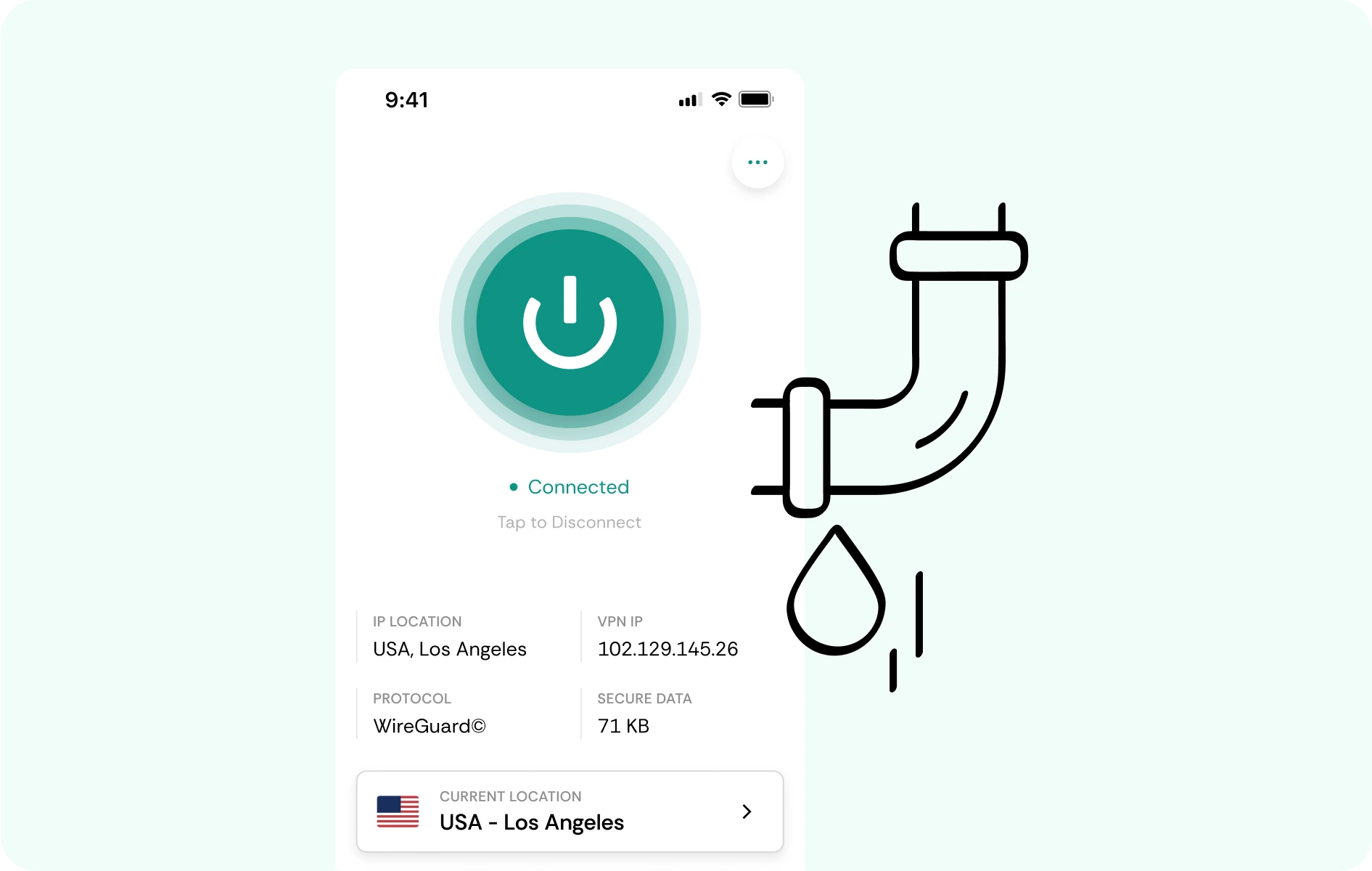What is a DNS leak?
A DNS leak is a security flaw allowing Internet Service Provider (ISP) to trace your online activity when translating domain names into IP addresses through its DNS servers. Even if you use a VPN service, default DNS servers may expose your browsing history.
Preventing DNS leaks involves using a private DNS or hosting your own DNS servers to reroute domain name requests away from your ISP. When paired with a secure from DNS leak VPN connection, most causes of DNS leaks are avoided.

Why do DNS leaks happen?
How CometVPN’s DNS leak protection helps you
Choose a plan that works for you:
most popular
24 Months
+3 Months Free
12 Months
+1 Month Free
Residential VPN
Uses IP addresses derived from household devices, making detecting your VPN usage nearly impossible
Dedicated Residential IP
Get an IP address that’s reserved just for you.
Obfuscated VPN
Hide your traces even further, making it difficult to detect that you’re using a VPN service
30-day money-back guarantee.
Payment methods:
Questions & answers
How do I know if my VPN is leaking DNS?
If you are not using a private DNS or running your own DNS server, DNS leaks are likely to occur. Run a DNS leak test to determine this conclusively. DNS leak tests work by identifying the DNS servers you use.
Does CometVPN block DNS hijacking?
DNS hijacking, also known as DNS redirection, is a cyber attack where DNS settings are manipulated to redirect the victim's device to illegitimate websites. Such an attack can lead to DNS leaks, various types of fraud and phishing attempts, or infect your devices with malware.
Can a VPN cause DNS issues?
Most VPN providers override the DNS server you set up with their own. While this is done for a better encrypted VPN connection, it may cause DNS issues. All major private DNS servers are compatible with CometVPN and should not cause any issues.
Is DNS leak protection enabled by default?
Many VPN connections route your DNS queries through their own DNS servers by default. While this helps to avoid DNS leaks conveniently, it might also cause issues and reduce flexibility if you want to use your own DNS settings or server.